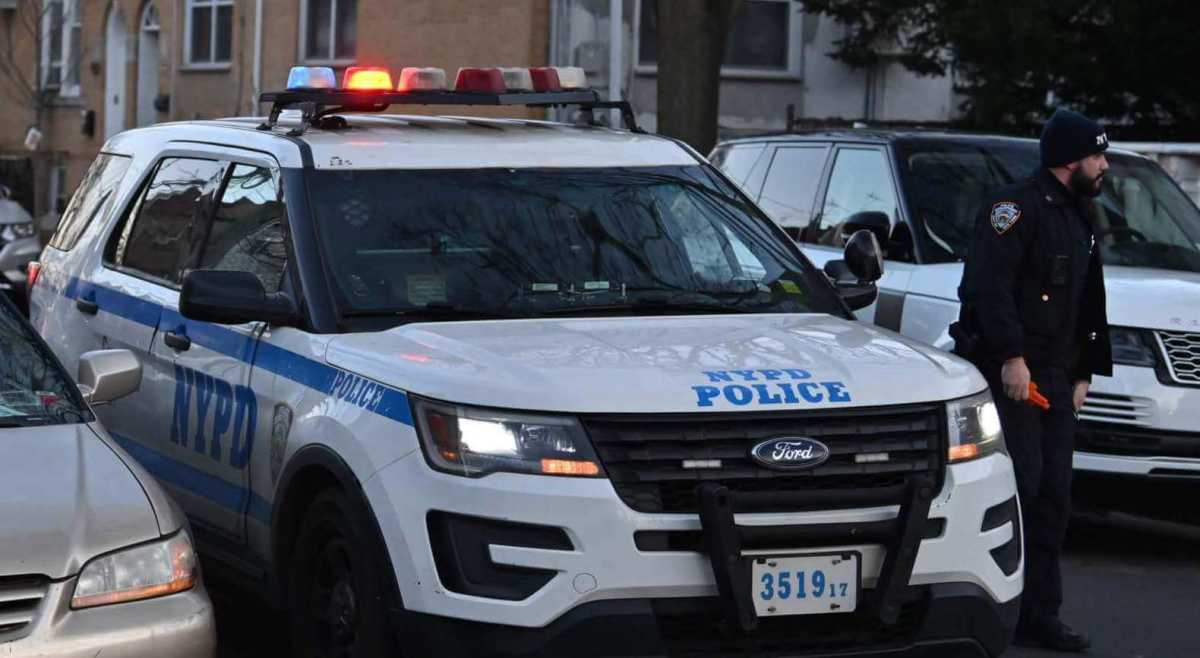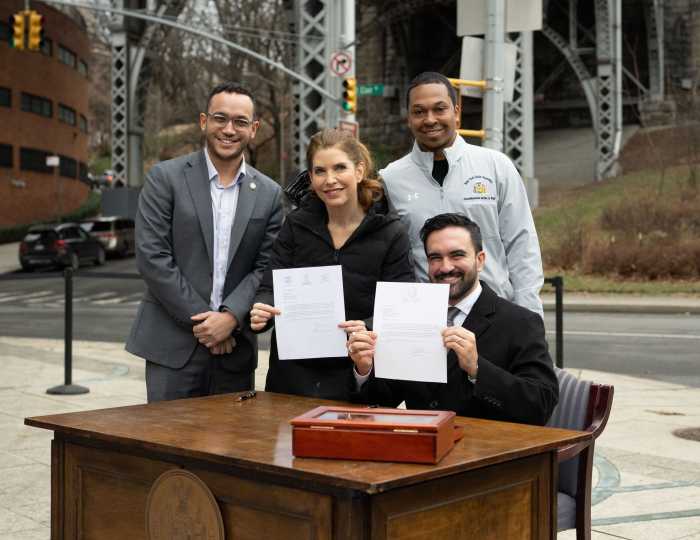As the City Council gears up to potentially override Mayor Eric Adams’ veto of the controversial “How Many Stops Act” Tuesday, local NYPD officers are grappling with the possibility of the idea becoming law — which could add significant bureaucratic red-tape to their daily duties.
“It would put cops at their desks for hours on end, when they should be on the streets dealing with out-of-control crime,” said one recently-retired NYPD officer.
The bill, which passed the Council last year, would require officers to document most interactions they have with members of the public in detail — which advocates say is a necessary step for elected officials to hold the NYPD accountable.
But Adams, a former police officer, vetoed the bill earlier this month — saying it added an undue burden on officers, who would need to document their interactions, including race and gender, even if the situation did not result in any repercussions.
“Those are stops such as, for example, if a person has a lost parent who’s dealing with Alzheimer’s or dementia,” Adams said on Monday. “Everyone that officer asks, did they see the person, he will have to document that. That’s the aspect of the law I disagree with.”
Now, the Council is set to vote on a potential override of Adams’ veto. That would require 35 votes in the legislative body — the exact number of votes to approve the legislation in the first place.
Council Speaker Adrienne Adams has promised to vote on that override on Jan. 30, and said she is “very confident” it will be successful.
Now, officers are beginning to grasp the possibility of adding that additional level of paperwork — and they are not thrilled.
“It’s ridiculous,” said the former cop, who asked not to be identified. “They became cops to keep their city safe. Now they’re going to be filling out paperwork for hours on end.”
The paperwork might not be so literal, according to proponents of the How Many Stops Act. On Monday, City Council Speaker Adrienne Adams and Public Advocate Jumaane Williams, the latter being the bill’s sponsor, suggested the NYPD had the ability to incorporate the reporting requirements into existing electronic forms officers already in use.
The speaker echoed the same point on NY1, saying that given the NYPD’s technological resources, it should be able to meet the bills’ mandates without overburdening officers.
“[The] NYPD is the most technologically savvy police department on the planet,” Speaker Adams said in a NY1 interview. “We don’t have the authority to dictate how policy is implemented, so if paperwork is the measure of choice for the NYPD, that will be their choice, not because the council says that this is the way this bill has to be implemented.”
While some cops are nervous about the pending bill, others are publicly supporting the idea.
Dr. Tracie Keesee, the former NYPD’s deputy commissioner of training under Mayor Bill de Blasio, led a group of 10 other former law enforcement officials from around the United States in condemning the mayor’s veto, and saying in a letter that the proposal would help build trust between police and regular citizens.
“We are deeply disappointed by Mayor Adams’ veto of the How Many Stops Act (HMSA), specifically Intro. 586, as it makes it clear he does not share our commitment to building deep trust between police and the communities they serve,” the group wrote.
The NYC PBA, the union representing most NYPD officers, however, nonetheless fiercely opposes the bill, saying it would distract officers from doing their work.
“New Yorkers have made their wishes clear. They want more police service. They want their cops to be able to do our job. These bills will accomplish the opposite. We are already thousands of cops short. Response times to critical incidents have already increased by nearly two minutes — that includes shots fired calls, where every second counts,” said PBA President Patrick Hendry in a statement. “Police officers must be able to focus on responding to calls for service, proactively addressing crime and taking illegal guns off the streets.”
“Instead, these bills will take more cops offline to deal with a mountain of new paperwork. Council members who sign onto these bills need to understand that they are only hurting their constituents.”
The recently-retired officer said he was glad he was off the force before the measure could be implemented — and wondered what his job would have been like had he been subjected to those stringent protocols.
“We put our lives on the line…it’s like a calling to us,” he said. “Filling out forms all day is safer, but it’s not why we do this.”
He agreed that serious interactions with the public, such as when a crime has been committed, should be documented in detail — but forcing officers to document so-called “level 1 stops” is both unnecessary and overly burdensome.
“Why do you need to know about me giving someone directions? It’s absurd,” he said.
With reporting by Ethan Stark-Miller








































